Studio Gypsied
Aqilah Zailan (founder)
Could you share with us about Studio Gypsied?
Originally known as Shop Gypsied in 2013, I sold handmade batik accessories and bags on my webstore. I used to make all of the batik accessories and bags myself. The sewing machine was my best friend.
In 2019, the word ‘Shop’ was dropped and replaced with ‘Studio’ to reflect the brand’s journey into apparel and fashion design. Today, we design ready-to-wear batik womenswear for contemporary women. I have direct relationships with batik artisans, and we recently started to design our own batik motifs as well.
Image with Caption
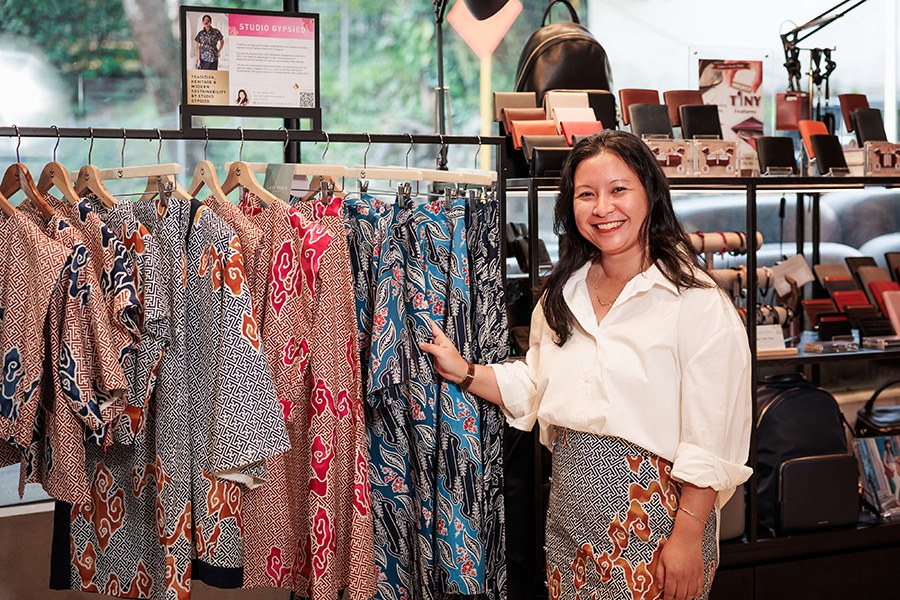 Aqilah with her collection of ready-to-wear batik womenswear.
Aqilah with her collection of ready-to-wear batik womenswear.
What made you decide to venture into this heritage business?
As I was in my early twenties when I started the studio, it was also a time when I was discovering and building upon my identity—a coming of age as one might say.
Batik helped me shape that narrative. It took me down the heritage route, starting with a keener observation of family traditions and practices, alongside asking questions such as: Who are my ancestors? What did they do? What were their stories? For example, my paternal grandmother pawned her precious batik tulis (hand drawn batik) pieces to make ends meet in 1950s Singapore. This story made me think deeply about batik not only as a garment for our bodies, but also as a treasured belonging and a worthy economic investment.
What’s a typical day for you like?
Every day is remarkably different! As a solopreneur in Singapore, I cover design, retail operations, production, sales and marketing all at once. These days my part-time assistant Ameerah is on board with me. She was with us for her internship program with Temasek Polytechnic's Fashion Retail Management and is continuing to assist me this year. Her presence gives me hope I can continue to grow the studio and nurture more young designers in the future.
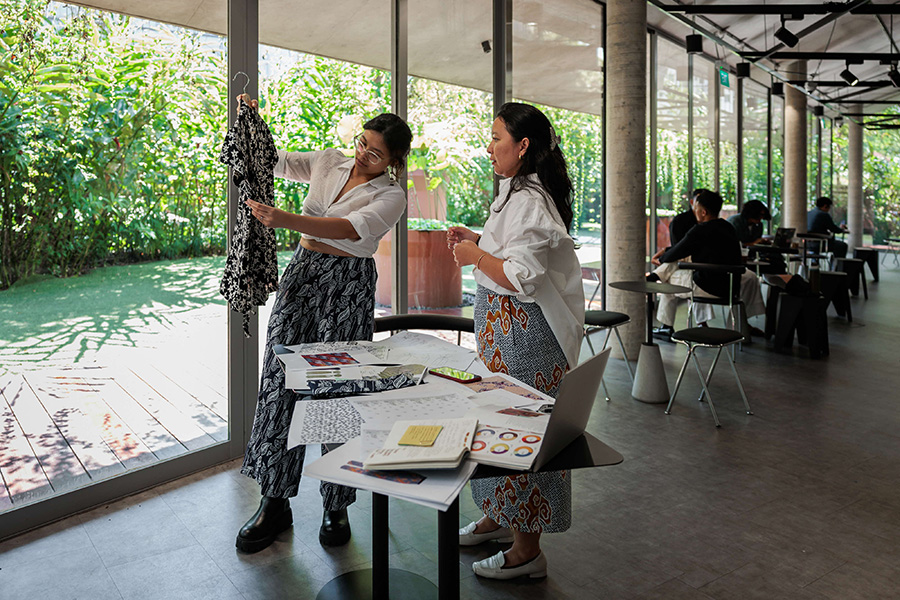
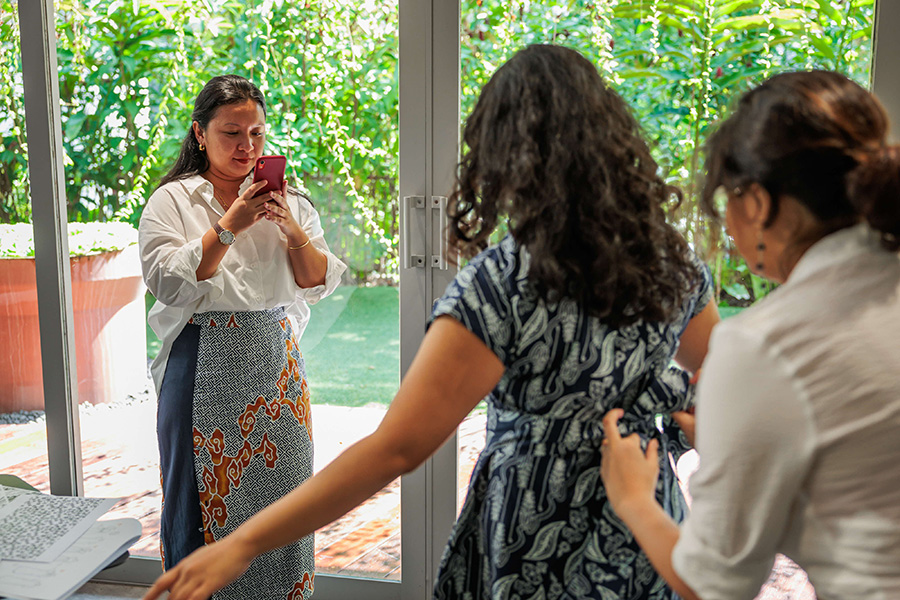 Developing a new collection includes everything from finalising motifs to testing fabrics and developing content for social media.
Developing a new collection includes everything from finalising motifs to testing fabrics and developing content for social media.
What made you apply for the Organisation Transformation Grant?
The main challenge was having limited resources to experiment with new fabrics to make batik on. Traditionally, we use treated, mass-produced cotton as the base canvas to make batik. Instead, I wanted to explore making batik in a sustainable way.
However, certified organic fabrics are largely untested for batik-making. The batik making process is a complicated one with many steps involving wax and dyes. In certified organic fabrics, the yarns of the fabric are softer. This means batik wax and dyes may be absorbed differently than on mass-produced cotton. The outcome of the batik art on the fabric may also vary with each batch of production.
Testing the making of batik on certified organic fabrics required extensive trial and error. The grant gave us the time and capability to conduct Research & Development.
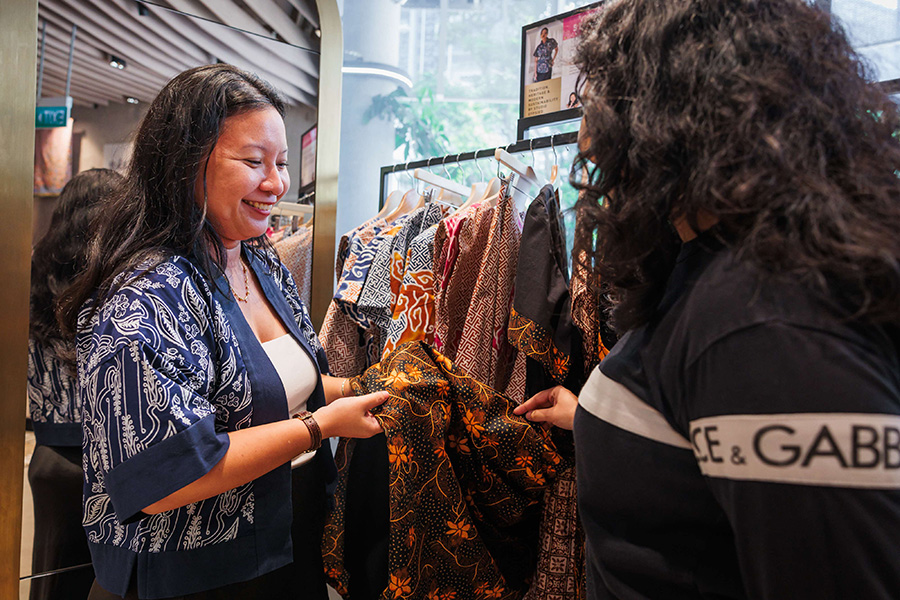
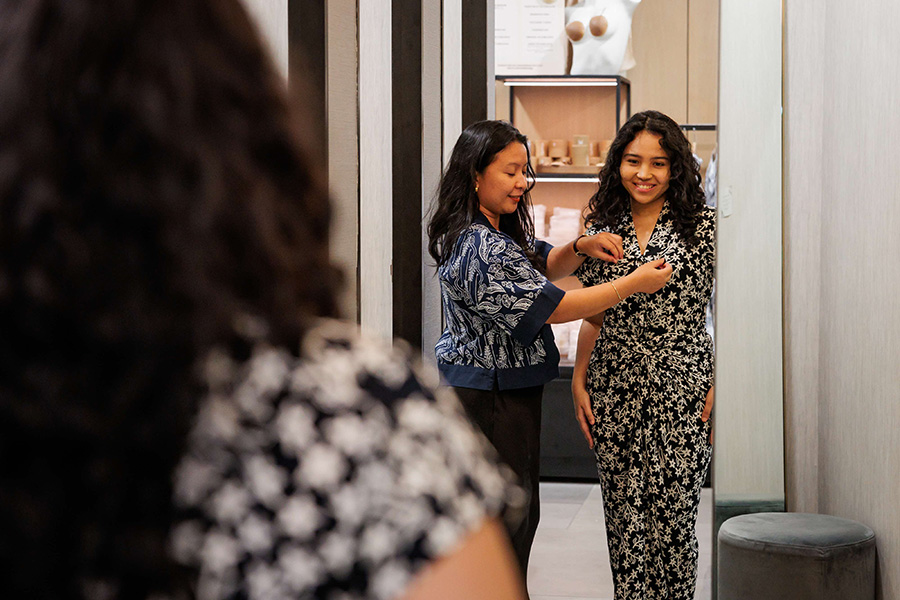 Aqilah showing the different types of batik material to a customer.
Aqilah showing the different types of batik material to a customer.
What have the results of the project been like?
Studio Gypsied now has the very first collection of batik made on certified organic fabrics in Singapore.
The fabric options for the new line of clothes include OEKO-TEX®, TENCEL™ and EcoVero™. These sustainable fabrics are made using less water and chemicals compared to mass-produced cotton fabrics. Amazingly, they were also very suitable as base fabrics for making batik, resulting in vibrant, vivid and long-lasting colours. From the OEKO-TEX® batik collection called Tumbuh, a top was tested (worn and washed) at least twenty times, and the colour has not run till today.
Highlighting sustainability in the process of handcrafting batik has also added value in a way that helps our customers understand the price point.
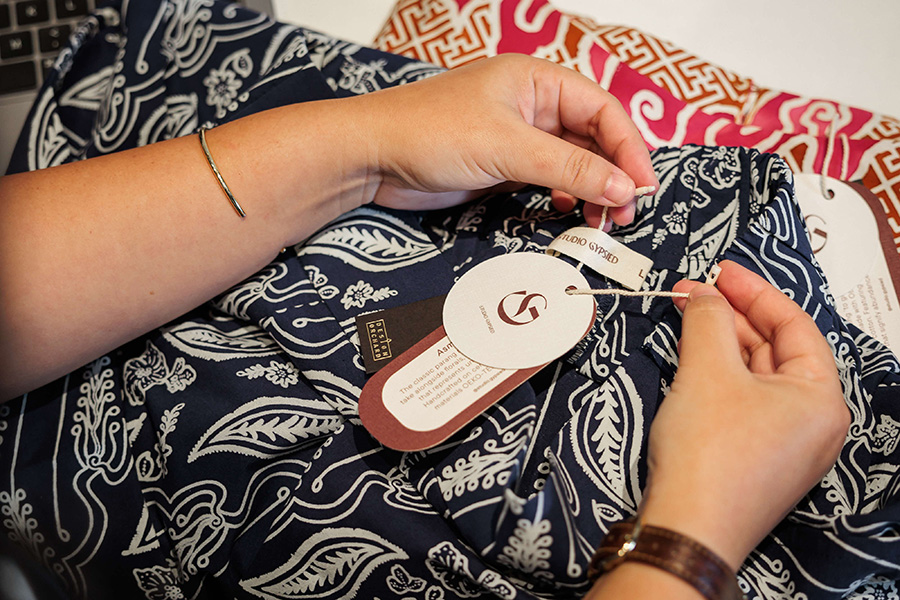 Each piece comes with a tag that explains the sustainable value of certified organic fabrics used to make the batik.
Each piece comes with a tag that explains the sustainable value of certified organic fabrics used to make the batik.
Any words of advice for other heritage businesses looking to innovate?
Introducing new ideas to grow your brand can feel intimidating. Running a heritage business today is a tension between what has always worked and co-opting the tools of the modern world. However, finding the right partners who believe in can help you bring your ideas to life.
Sometimes the smallest change can have the biggest results. It does not have to be complicated!
Find out more about Studio Gypsied at their Website or Instagram @studiogypsied